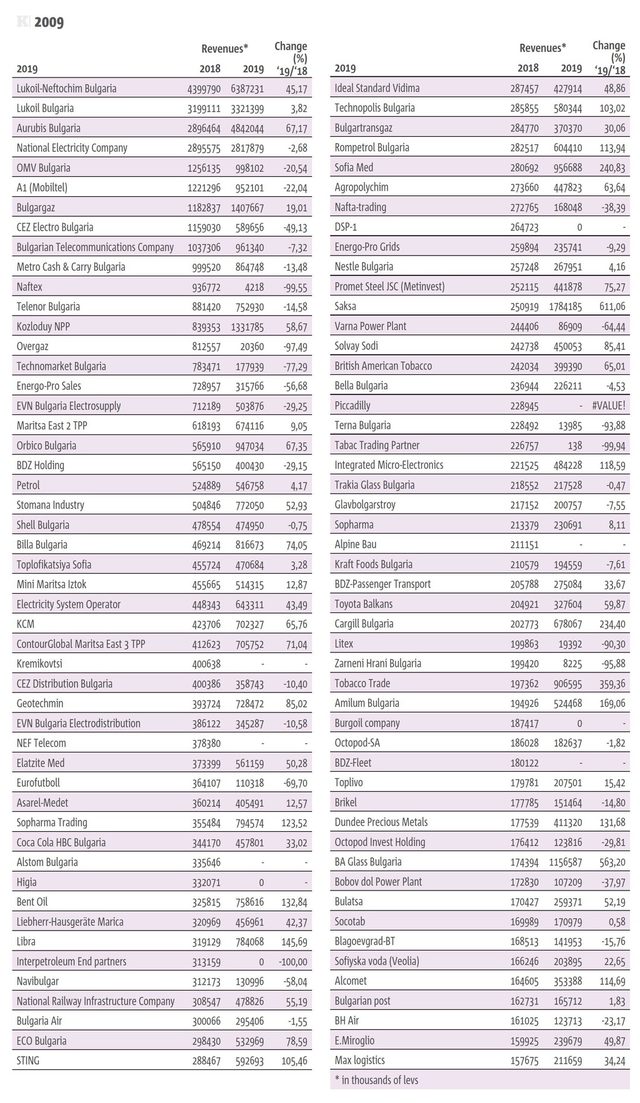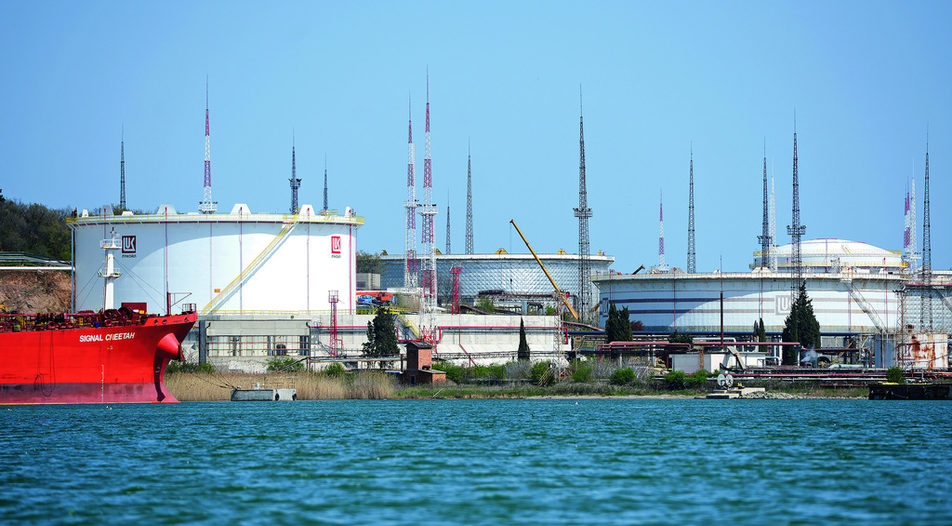Ten years ago, Bulgarian companies felt the shock of the global financial crisis: after the strong growth accompanying the country's accession into the European Union in 2007, their business rapidly shrank. The 100 largest companies registered an extreme 17% year-on-year drop in revenue in 2009. Ten years of recovery later today, companies look bigger and more stable. But they are now faced with a new crisis - because of a pandemic and not because of global financial problems.
The total revenue of the 100 largest companies in Bulgaria in 2009 amounted to nearly 50 billion levs (25.6 billion euro). Today, the top 100 companies generate almost 50% more revenue, which shows steady growth even if inflation is taken into account. The lesson of ten years ago is that a crisis means vanishing sales and profits. Today, as in 2009, huge losses are recorded by state-owned companies, while privately-owned firms are more flexible and able to survive. There is another disturbing comparison: the analysis of ten years ago shows that 60% of the top 100 companies had foreign owners. Today, the percentage figure is smaller: 52. The key reason is that the crisis triggered the withdrawal of western investors, mainly in retail and finance. It should be noted that the state has now decided to expand into new business areas like construction and fuel trade, which will further worsen the ratio in future, especially if we take into account the lack of new foreign investors in recent years. The differences There are no changes among the leading three: Lukoil's refinery and trade company form the top duo, followed by Pirdop-based copper producer Aurubis. There were two telecommunications companies with revenues topping 1 billion levs among the first 10 in 2009, but a decline in service prices in recent years has reduced their turnovers. The top 10 list also featured the local units of OMV and Metro but stiff competition has now deprived them of millions of leva of sales.The companies that have disappeared from the list are well known: half of them have gone bankrupt, the other half have been closed down. The first category comprises companies like Kremikovtsi steel mill Piccadilly supermarket chain, Naftex Petrol and foreign companies that back then had construction projects, such as Alpine Bau and Terna. Some former sales intermediaries of Burgas-based oil refinery Lukoil Neftochim are also now missing from the list - Interpetroleum & Partners and Burgoil.
There are single representatives of otherwise growing sectors that have shrunk substantially, e.g. Technomarket and Eurofootball. Though cigarette producer Blagoevgrad BT is still on the list with a pretty good turnover in 2019, its factory is actually no longer operational and reports revenues from other activities, while sister company Sofia BT has entirely disappeared.
The top 100 companies generated 60 billion levs revenue in 2014. Five years later today the figure is just 11% higher. There are several companies that have doubled their business, though starting from a high base. Such examples are the local subsidiaries of German retailer Lidl and sensor producer Sensata Technologies and sunflower-oil maker Oliva. There is one big change in the grain sector. The Bulgarian company of global commodities trader Glencore, which used to make a turnover of nearly 300 million levs, has disappeared. At the same time, the local business of its American competitor Cargill is now much bigger. As a matter of fact, Bulgaria's accession into the European Union and the accompanying huge subsidies for agriculture have triggered a process of steady growth and presence of wheat, corn and sunflower traders among the 100 largest companies in terms of revenue.

Ten years ago, Bulgarian companies felt the shock of the global financial crisis: after the strong growth accompanying the country's accession into the European Union in 2007, their business rapidly shrank. The 100 largest companies registered an extreme 17% year-on-year drop in revenue in 2009. Ten years of recovery later today, companies look bigger and more stable. But they are now faced with a new crisis - because of a pandemic and not because of global financial problems.
The total revenue of the 100 largest companies in Bulgaria in 2009 amounted to nearly 50 billion levs (25.6 billion euro). Today, the top 100 companies generate almost 50% more revenue, which shows steady growth even if inflation is taken into account. The lesson of ten years ago is that a crisis means vanishing sales and profits. Today, as in 2009, huge losses are recorded by state-owned companies, while privately-owned firms are more flexible and able to survive. There is another disturbing comparison: the analysis of ten years ago shows that 60% of the top 100 companies had foreign owners. Today, the percentage figure is smaller: 52. The key reason is that the crisis triggered the withdrawal of western investors, mainly in retail and finance. It should be noted that the state has now decided to expand into new business areas like construction and fuel trade, which will further worsen the ratio in future, especially if we take into account the lack of new foreign investors in recent years. The differences











